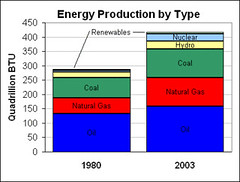
For anyone that has enjoyed bargaining over a Turkish carpet in Turkey, or in my case a engagement ring, the experience is usually pleasant and filled with a lot of back and forth. Thus as the Jamestown Foundation reports via Reuter, negotations with Turkey and their bargaining position of 15% of off take from the Nabucco pipeline are still ongoing.
Yildiz was asked about the Nabucco Managing Director Reinhard Mitschek's earlier comments that Turkey's demand for "the 15 percent out-take is not on the table" (Reuters, May 29). In response, Yildiz insisted that Turkey's demand was still under consideration. After noting that lively bargaining was occurring, he maintained that the Europeans appreciated Turkish concerns. "They are not completely indifferent to 15 percent. The real problem is about its modality... It might be possible to exclude it from the intergovernmental agreement, and then regulate it under another agreement" (Cihan Haber Ajansi, June 3).
While the bazaar also offers alternative sellers of carpets to buy from, Turkey remains essential to the success of Nabucco. So let's not expect the Turks to go much lower.
Friday, June 5, 2009
Haggling in the Turkish Bazaar
Thursday, June 4, 2009
Visions of the (Western) European Energy Future

So if Russia turned off all the gas taps to Europe, Europe would be fine, since other alternatives are possible - unless you are Bulgaria. Well, that was the viewpoint of one leading (Western European) academic of at the 6th European Energy Market Conference in Leuven, Belgium. I attended it last week (May 27-29, 2009).
To keep you in suspense and to keep you reading, I'll come back to the gas presentation, after I run through the contents of the conference and how actual alternative energy systems are very much part of the future, which also challenges the assumption of Europe, and let's not us forget Eastern Europe's ability to withstand a cutoff of Russian gas.
But I have to offer one disclaimer, in my notes I did not write the speakers name. I'll put this down having an awful cold during the conference, and even now I'm coughing up a lung. When the presentations are sent out hopefully they'll shed some more light.
One of the first speakers at the conference described the building of an intelligent network and distribution system which includes communication technologies relying on broadband internet and software forming it into a multilayered and interdependent system. He established the energy industry as the 21st century source of innovation infused with novelty and breakthroughs. On this point, all were in agreement, but thinking back on it, there were still limited examples of the actual application of these novel solutions. While we are only 9 years into the 21st century one can still hope that we will enter into it sooner rather than later. The fact, told at the conference, that much of Europe's energy infrastructure needs to be replaced, due to it's age, in the next 10 to 20 years offer this opportunity for re-engineering the transmission network. Maybe in it's replacement we see these smart concepts and a 21st century grid built.
The regulatory issues and Europe's third energy package were also discussed. Probably the best description of this debate is there is emerging a bidirectional flow of energy, information and money. And as we know the proper implementation of regulation can aid and foster this bidirectional flow.
The greater coordination of regulation and infrastructure building also offers opportunities to balance out reasonable prices, with security of supply concerns and the environment, as explained by one speaker from Electrabel. Importantly, as expressed by ETSO, the investments that occur today need to be informed by scenarios beyond 2020. Scenerios that include smart cars and smart grids. But as I will note below, does this include the cutting off of gas from Russia?
Regional markets and their importance and the importance of a regional regulator were espoused. I love it all and it is spot on. The solutions lie in regional cooperation with practical solutions such as 'social transmission charges' for communities not directly benefiting from transmission lines. I guess this could be labled as 'local blackmail' or 'political opportunitism', but from a geographical point of view, it can be called 'locational advantage'.
Cool word: fugitive emissions
Best useful factual thought: oil volitility depends on past volitility, natural gas volitility responds to unanticipated events such as supply interruptions or reduced stock.
Now we arrive to the Friday afternoon session on the European gas market. Or rather the geopolitics of gas. And yet another important quote speaks from my notes, "natural gas may become the fuel of consequence because of the delays in building enough renewable energy sources and implimentation of CCS technology." And despite predictions, gas demand won't drop until at least 2020, because of the failure to diversify now. Due to the low CO2 from gas and the ability to build gas generation quickly it can fill this technological gap.
Diversification was spoken of. Diversification from the Ukraine, through Nabucco and LNG. The consideration was there of mutual dependency of Russia and Europe on Russian gas supply. I think it needs to be examined, just like the concept of 'mutual destruction', was considered, how 'mutual gas dependency' influences the political and economic activiities of Europe, Russia and the US. Does this ursurp mutual destruction?
However, at the same time it is seen that cross-border flows, mainly within Europe's interconnectors, are key to the continents long term security of supply. But national protection needs to be avoided. Strategic gas storage is unsound and should be avoided - it is for the short term and does nothing for the long term security of supply.
So now we come back to the point about Russian gas. Easily for the next 10 to 20 years we have increasing demand for gas while the 21st energy system is being developed and deployed to a limited extent by 2030. To satisfy this increase in demand for gas, the solution will come from building more LNG facilities and gas pipelines from Russia and central Asia. However, even if planned LNG terminals are built in Poland and Croatia and interconnector capacity is increased, by design, there will still be a large dependency on Russian gas. As pointed out by a speaker, if the failure to build adequate renewable energy sources and a technological hurddle exists for CCS, then gas will become an increasing part of the electricity mix with new capacity meeting this new demand, thereby not displacing Russian gas. Thus reliance on Russian gas and all the geo-economic-politics that goes along with it should not be seen as diminishing in the foreseeable future, nor the effects of turning off the taps. Energy independence and security of supply are boosted when external threats to supply disruptions, with consideration of cost, are reduced to a small percentage. It remains to be seen whether Russia will be a reliable supplier to Europe once alternatives to Ukrainian transit are removed.
Labels: 20/20, CO2, cross-border, electricity, Energy Efficiency, gazprom, investment, wind
Monday, June 1, 2009
Wind Power and Agreement in America
Here is a well written and produced video story about the growth of wind power in Texas and its acceptance. While this story is well known, this is a good overview and touches on a number of topics I'll be writing on in the coming days. I attended an energy conference last week and came away with some strong impressions of the future make up of Europe's energy infrastructure.
Labels: electricity, renewables, US, wind
Sunday, May 31, 2009
The Privatization of Electricity Companies in the SEE Region

The report that Vidmantas Jankauskas and I wrote for USAID and NARUC is finally publicly released. I'm very happy to say. It is about the privatization of the electricity distribution companies in Bulgaria, Macedonia and Romania. Through case studies we explore key issues that have influenced the successful or not-so-successful outcomes of these privatizations. The overall objective of the project was to create a list of issues that can help future privatizations. I think we have done this. But any feedback on this would be greatly appreciated. You can find the full report on the REKK website.
Labels: electricity, energy companies, investment, privatization
Thursday, May 21, 2009
Types of Gas Networks - boring but interesting
The below discussion is a little out of context, and season, but nonetheless, I thought it was good to put in context the different business models. I'm drawing on something that I'm working on right now, so excuse the out of context nature of the text, but it should still be informative.
Gas networks are not national in scope. The discussion of the impact of the Russia-Ukraine gas dispute is many times broken down by country with some emphasis of the regional impact. However, it is the very nature of all networks that they are not isolated. In general, constrained networks, particularly in energy, have limited flexibility and contain limited redundancies. These security of supply elements are at their starkest in times of crisis, whether it is electricity blackouts or gas supply disruptions, in cases where there is greater systemic flexibility, disruptions will occur less or last for a shorter period of time. Therefore it is important to consider the current and future design of the CEE and SEE gas network and the accompanying business models. It is at this point that the economics, geopolitics and social impacts of the 2009 gas disruption and how to mitigate a repeat of it are most visible.
If we look at the different characteristics of the security [of supply] question, it arises that networks are at the core of the problem, and today this assumption is subject of a consensus. We may consider two types of possible network development in order to secure supply.
1. Transit pattern: build more pipelines between suppliers and consumers and thus increase the capacity of existing infrastructure in order to get more gas in the market.
2. Network pattern: reinforce the communicability of the internal system by creating links between consumers; strengthen the interconnections between member countries. (Pirovska 2004:7)
The first option of network development, explained by Pirovska, is chosen by Gazprom which seeks to increase capacity through multiple transit pipelines and corridors in order to directly connect with national TSOs. By supplying countries through this method, there is little economic incentive for national suppliers to build interlinking gas systems – as long as the gas continuously arrives.
However, if the development of an efficient and competitive market is chosen as a viable goal in gas network development, which also stresses the need for contingencies for security of supply, than strengthening local and regional networks should be a high priority. The example that can be used here is the development of the New European Transmission System (NETS) project promoted by MOL. This seeks to integrate the national gas networks of the SEE and some CEE countries into a grouping of companies with a highly integrated gas network with multiple inputs points. However, so far, there has been limited interest in developing this concept from potential participating countries.
These two methods of network development are both supported by the EU, but the first option is certainly the most prevalent in the SEE and parts of the CEE region. The halting of gas deliveries in January 2009 from Russia underscores, from a security of supply point of view, the vulnerability in the first system and the long term viability in the second of network pattern development.
Sources:
Pirovska, Margarita. “Interconnection of East European
Natural Gas markets: towards a
cooperation between players?.” working paper, 2004. http://www.dauphine.fr/cgemp/
Friday, May 8, 2009
Oh Wait! Who owns Emfesz?

To add to the ongoing saga of what is happening with the shutting down of RosUkrEnergo, here is this very interesting piece in Portfolio.hu describing what appears to be an illegal taking of the whole Emfesz company.
Mabofi Holdings Limited has on Thursday claimed it is the “legal owner of 100% of the issued share capital" in Hungarian natural gas trading company Emfesz, which was sold to Switzerland-based RosGas. Mabofi said it would seek legal ways to have its ownership restored.
Since the article will soon be restricted unless you register with Portfolio.hu, I'll describe what they write.
Cyprus-registered Mabofi is part of Group DF Limited, the holding company of the business assets of Dmitry Firtash.
The rest below is from a statement released by Director David Brown(cf Portfollio.hu), it really is classic.
“Mabofi discovered on the morning of the 6th May 2009, that the shares in Emfesz had been fraudulently transferred to a Swiss company registered in Zug, Switzerland, RosGas A.G. This purported transfer has been registered with the authorities in Hungary. There is no information available as to the beneficial ownership of RosGas, but one of its directors is Mr Tamás Gazda, a Hungarian lawyer, who was employed by Emfesz, under the direct instructions of the Emfesz General Director, István Góczi."
“Neither Mabofi, Group DF or any of the senior management of the group had any knowledge of this transaction, and have given no approval whatsoever. Our understanding is that István Góczi (who is in the process of being removed from the board of directors of Group DF Limited) has carried out this transaction based on a power of attorney given to him in October 2004, primarily giving him the powers to carry out the original acquisition of Emfesz." “Mabofi is now actively pursuing all of its legal rights in Hungary, Cyprus and Switzerland, and is confident that the ownership of Emfesz will be restored to its rightful owner as soon as possible." (my emphasis)
I guess I should amend my last post. But then it is only Friday afternoon and who knows what will emerge by Monday morning. Either way, just when you start to formulate an analysis and perceive some strategic moves, there emerges some completely different information that throws the analysis into the trash. Now the only step is to dig into who Istvan Goczi is and why he is being removed. I think one could speculate that he may not have been working with only Group DF Limited interests in mind. But let's wait and see what crops up next week.
Wednesday, May 6, 2009
The Rebirth of Middlemen for Russian Gas
 The arranged demise of RosUkrEnergo (RUE), the intermediary of Russian gas, after the Russian/Ukraine gas dispute in January 2009 was meant to bring clarity to purchasing Russian gas. The contracts held by RUE involved deals with Hungary's Emfesz and Poland's PGNiG. With the shutting down of the company these buyers have had to find another way of buying gas from Russia. It seems though that the role of intermediaries is not over.
The arranged demise of RosUkrEnergo (RUE), the intermediary of Russian gas, after the Russian/Ukraine gas dispute in January 2009 was meant to bring clarity to purchasing Russian gas. The contracts held by RUE involved deals with Hungary's Emfesz and Poland's PGNiG. With the shutting down of the company these buyers have had to find another way of buying gas from Russia. It seems though that the role of intermediaries is not over.
You would think - well, depending how long you thought for - that you could just go to Gazprom and buy the gas that you needed. I mean, who else sells gas in the quantities that a domestic supplier needs in CEE? PGNiG is pursuing this strategy by agreeing to buy gas from Gazprom according to newsreports:
May 4, 2009
Rzeczpospolita, 29 Apr 2009, online:- Polish newspaper Rzeczpospolita has found out that the Polish national oil and gas concern PGNiG, which estimates its gas supply shortage at 2.5 billion cubic metres, is not going to accept the gas supply offer of the Hungarian Emfesh (sic), as it prefers to buy gas directly from a producer rather than from an intermediary.
The brief article goes on to say that PGNiG is in talks and early agreement with Gazprom. But we'll have to wait and see what entity the deal is inked with. BECAUSE, it is interesting to note that a) Emfesz was even bidding to supply gas to PGNiG and b) that Emfesz just announced that it would be buying gas from RosGas AG. According to Emfesz and this analysis by Roman Kupchinsky in his posting from the Jamestown Foundation, RosGas AG actualy belongs to the owners of Emfesz and Gazprom. However, this connection to Gazprom has been denied by Gazprom, as Kupchinsky explains and disputes.
At this point, there are a lot of loose ends and I'm not sure how to draw a conclusion about this. I can only say that it is interesting that Emfesz was bidding to supply Poland with gas when it would obviously be buying gas from Gazprom, and possibly through RosGas, which could supply the contract. We'll have to wait and see which entity PGNiG signs the contract with. Either way, the demise of RUE does not signal the end of murkey ownership and supply structure when it comes to Russian gas. Kupchinsky explains the establishment of RosGas as reward for one of Emfesz's owner for loyalty. I think there are other ways, even for Russians, to reward loyalty, we'll have to wait and see how other factors in Hungary, particularly with Russia's new interest in MOL play out. Loyalty is most effective when you are working together over the long term.




